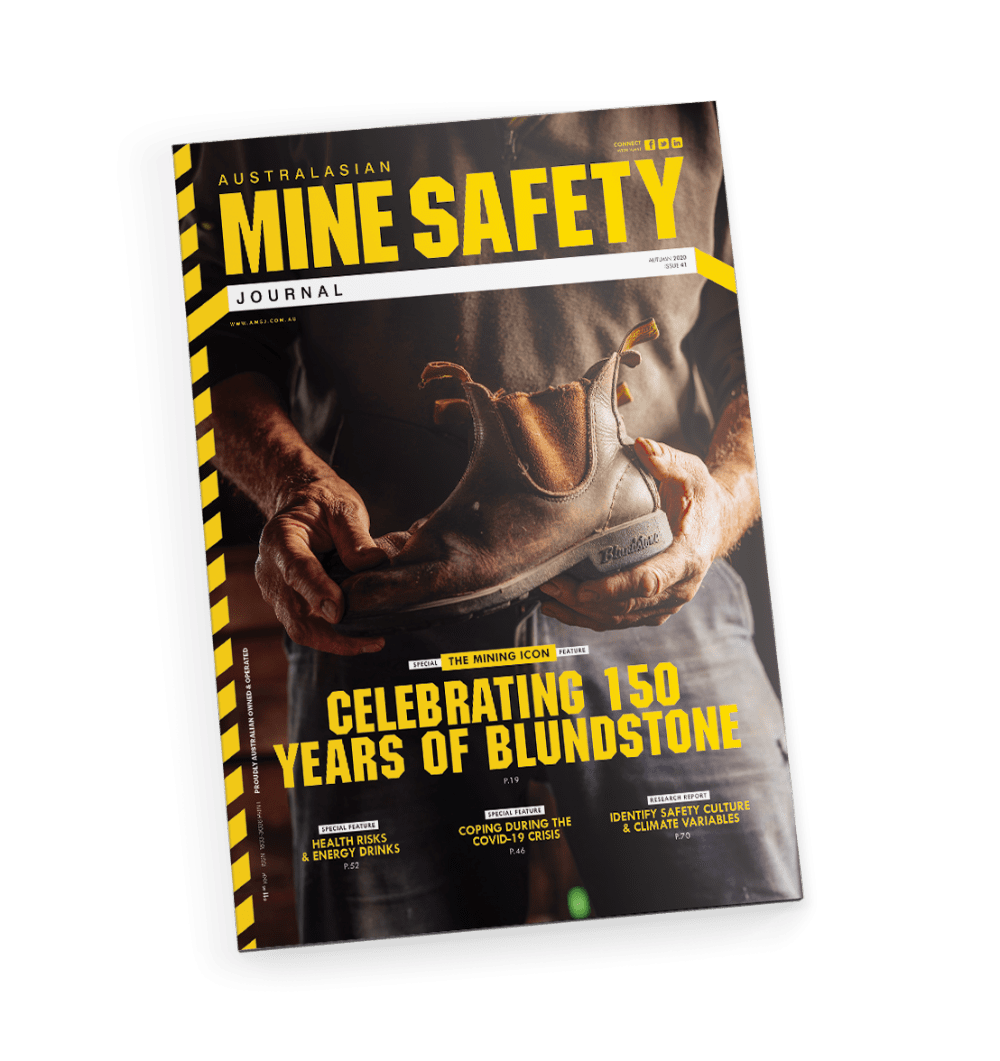Grahame Kelly from one of Australia’s largest mining unions has highlighted that miners must not compromise safety standards during COVID-19.
The CFMEU Mining and Energy Division supports the continued operation of the mining industry during the COVID-19 pandemic to support jobs and the economy, as long as the health and safety of workers and communities is put first.
Most mining companies are taking the issue seriously and implementing protocols around social distancing and hygiene in line with government health advice. However, some employers need to lift their game and some sites need to improve consistency in how measures are applied. CFMEU members have reported a range of concerns from lack of enforced social distancing on site to overcrowding of vehicles and lack of sanitation for machinery and equipment. These concerns have been and continue to be investigated and addressed by Union safety inspectors and state regulators.
In addition to managing the risks associated with COVID-19, mine operators must of course continue to comply with all existing health and safety requirements under various legislation and must not use the pandemic as a green light to water down current employment or safety standards. As we have seen with a string of fatalities in Queensland over the past 18 months, the industry can’t afford to go backwards on safety as it addresses the new challenges associated with COVID-19.
As the weeks go by, issues continue to emerge. These include:
Labour hire: The trend towards outsourcing large parts of the workforce to third party labour hire companies, usually on a casual basis, means there may be different approaches to enforcement of safety protocols for different workers on a mine site. Labour hire workers are less likely to raise safety concerns or take time off work due to their casual status. Additionally, many labour hire workers lack the entitlements and support available to permanent employees if they need or are directed to take time off.
Mental health: stress levels are high for all workers at the moment. Non-residential workers are facing particular challenges, with some having to relocate interstate to avoid border closures and greater restrictions on movement and exercise opportunities for workers in camp accommodation.
“In addition to managing the risks associated with COVID-19, mine operators must continue to comply with all existing health and safety requirements under various legislation.”
Fatigue: with some rosters changing to limit transport movements there are concerns about the fatigue implications of changed and longer roster patterns. Changes to rosters must still be subject to thorough risk assessments and consultation with the workforce.
Transport: enforcing social distancing has been a challenge on transport including FIFO flights, buses and other vehicles. While the situation is improving, with companies increasingly enforcing passenger limits and sanitation, workers are also encouraged to make sure their personal transport arrangements to get to work, such as car-pooling, comply with social distancing laws in their state by limiting passenger numbers in cars.
Transparency: a lack of prompt information about including measures to identify and manage all potential points of cross-contamination, could raise concerns among the workforce.
The Union is in regular contact with regulators, mine operators and members and delegates on site to address issues and make sure that the actions companies say they are taking are being enforced.
Minimum standards for mines
The CFMEU Mining and Energy Division has developed a guide to the minimum essential steps for mine operators:
POLICIES & PLANS
- Site-specific risk management plan in place.
- COVID-19 co-ordinator on site.
- Protocols for identifying and reporting infected and potentially infected coal mineworkers.
- All medical staff on site supplied with appropriate tools and support.
- Appropriate quarantined area on site.
- Appropriate leave for affected workers to ensure self-identification.
- Employee Assistance Program is available to employees.
HYGIENE
- Hygiene controls provided at all work locations, such as soap, hand sanitizer and disinfectant wipes.
- Additional signage around hygiene controls.
INFORMATION
- Workers provided with information about COVID-19, how it is spread, how to prevent contracting it and risk factors.
CLEANING
- Cleaners to be trained and apply infectious disease processes.
- Increase the frequency of cleaning for areas of high touch points.
- Machinery and transport cleaned and sanitized after every use.
SOCIAL DISTANCING
- Develop and implement system to for social distancing that caters for:
- Handovers
- Prestart meetings
- Crib breaks
- Travel to and from work, e.g. bus services and carpooling.
- Maximum number of people permitted in rooms.
ISOLATION
- Register for those undergoing testing, self-isolating and in quarantine.
- Systems in place to transfer the person home.
- Systems in place to transfer the person from the mine site to isolation accommodation or hospital.
CAMPS – FOOD & ACCOMMODATION
- Prevent cross-contamination from food preparation through:
- Increased sanitation of food preparation areas.
- Self-service discontinued and cribs/lunches pre-packaged for pick up.
- Supply hygiene systems at the entrance exit to dining facilities.
- Limited numbers in dining facilities.
- Have an appropriate area for quarantine.
- Where sick or isolated people can’t be transferred home:
- Adequate medical systems to cater for the treatment of COVID-19 and any other medical issue that may be required.
- Allow for adequate exercise, communication and mental stimulation.
- Regular and adequate cleaning and sanitization of the room.
SUPPLIERS
- Engage with all suppliers to inform them of the requirements of the mine for the control and prevention of COVID-19.
Frequently asked questions
Mining is ‘essential’: do social distancing laws apply?
Some workers have been told by supervisors that social distancing laws don’t apply on mine sites because mining is classified as an essential industry. It is true that state public health orders relating to social distancing and other COVID-19 measures contain exclusions for ‘essential’ industries like mining.
However, every mine in Australia has strong safety laws. These are made by state governments and while there is some variation, they all contain the requirement that mine safety standards cannot be set at a lower level than that which applies in the general community. That includes recommended measures in terms of dealing with coronavirus.
If a mine manager is saying that social distancing and hygiene guidelines don’t apply in a mining environment, they could be in breach of their obligations under state occupational health and safety laws. Anyone with concerns about how the COVID-19 precautions are being implemented should raise it with their supervisor or the Union.
What should mineworkers do if they have concerns about COVID-19 safety?
Every mine in Australia is covered by strong health and safety laws, including protections against any adverse action being taken against workers who raise a safety concern.
We encourage any worker with a concern that their health and safety is not being protected in relation to COVID-19 to raise this in the first instance through existing issue resolution procedures in place at their mine site.
Usually, the first port of call for a mineworker is their supervisor. The best outcome is for issues to be raised directly with supervisors so they can be logged and addressed or escalated to a more senior level as quickly as possible.
If the issue is not addressed to the worker’s satisfaction, or they would like additional support, it should be raised with the site safety and health representative.
If concerns cannot be resolved at the site level, they can be escalated through Union site or district representatives, including industry check inspectors.
If a worker thinks their mine site is dangerous or has broken the law, they can also contact state-based regulators like the NSW Resources Regulator or Queensland Mines Inspectorate directly.
However, we encourage all mineworkers to raise issues and seek resolution at the site level in the first instance. Workers should be reassured that they are protected by law when it comes to raising safety concerns. With COVID-19 as with any workplace safety issue, enforcing safety depends on workers standing up and speaking out – with the full support of the Union backing them up.
PROFILE
Grahame Kelly
General Secretary – CFMEU Mining and Energy Division
Grahame grew up in Singleton in the NSW Hunter Valley. He started work in the coal mining industry at Warkworth in 1985, first as a trades assistant and then as a washery operator. In 1996 he was elected Lodge Secretary at Warkworth and then in 2000 he was elected to the Northern District Board of Management.
In 2003 he stepped into the role of District Vice President and in 2006 was elected District Secretary. In November 2017 he was elected General Secretary of the Division.

























